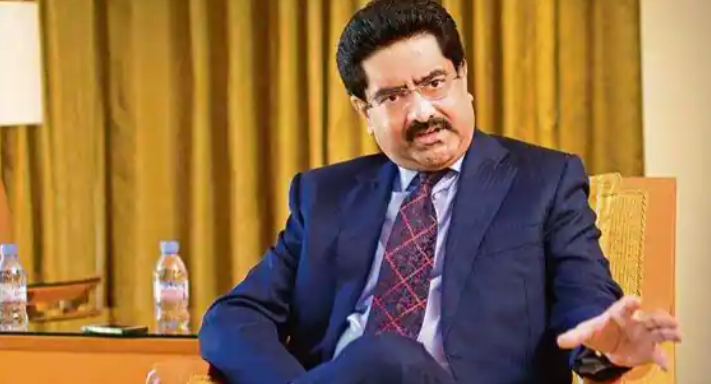Vodafone Idea Ltd’s board on Wednesday accepted chairman Kumar Mangalam Birla’s request to step down, as he distanced himself from the beleaguered telecom operator, underscoring the gravity of the crisis that has engulfed the once-booming strategic sector.
Birla will be replaced by Aditya Birla Group and telecom industry veteran Himanshu Kapania, Vodafone Idea said in a stock exchange filing. Aditya Birla Group chief financial officer Sushil Agarwal has also been named to the company’s board as an additional director.
Birla’s move to step down as the chairman of Vodafone Idea comes a day after it became known that he had written to cabinet secretary Rajiv Gauba, offering to relinquish Aditya Birla Group’s stake in the company to any government-approved entity. In his letter, Birla cited the dire financial position of Vodafone Idea and its imminent collapse as the chief reasons for the offer.
“It’s clear that he feels that continuing as the chairman after offering to relinquish the stake will not be morally correct,” said a former Aditya Birla Group official who declined to be named. “In any case, it is natural for him to personally distance himself from the company even though the group’s representation in the board will continue like before,” the person said.
With Vodafone Idea’s survival at stake, the telecom sector appears to be headed for a duopoly, a situation that will not only crimp choices for consumers but can also lead to sharp tariff hikes. Policy flip-flops, adverse court decisions, high spectrum prices and licence fees have pushed the once vibrant industry into a graveyard for companies.
Investors, both foreign and local, including the UK’s Vodafone Group, Norway’s Telenor, Russia’s MTS, Japan’s Docomo and the UAE’s Etisalat, and India’s Tata group, have sunk vast sums of money into their telecom operations in India, with nothing to show.
The only firm in the sector that has managed to flourish recently is Reliance Jio Infocomm Ltd, which snatched market leadership from Vodafone Idea and Bharti Airtel Ltd within the first three years of its operations.
In a related development, Vodafone Group ruled out any further equity infusion into its Indian telecom unit but declined to comment on Birla’s offer to give up his stake.
Vodafone Idea has been struggling to raise funds to meet staggering amounts of regulatory dues that the company owes the government on account of licence and spectrum fees. Over the past year, it has seen a sharp erosion in its customer base, ceding market share to rivals Bharti Airtel and Reliance Jio while reporting losses for the past many quarters.
It needs to arrange ₹22,500 crore between December and April to repay a mix of regular debt to lenders, AGR (adjusted gross revenue) and spectrum dues. It has an AGR liability of ₹58,254 crore, out of which it has paid ₹7,854.37 crore and ₹50,399.63 crore is due.
The survival of Vodafone idea now hinges on a potential rescue deal from the government, according to the person cited above. The company is seeking a moratorium on payment of spectrum dues and a restructuring of its bank loans. However, experts said these measures may only provide a temporary reprieve.
“The only viable option is for government to convert its entire or large part of its outstanding dues into equity, post which it will become the largest shareholder. However, such a move may be fraught with legal implications,” said a telecom analyst seeking anonymity.
“Vodafone Idea will have a positive net worth, following which it will also be able to raise investments to fund capex and working capital, supported by its cash flows as it remains Ebitda-positive,” the analyst said.
“This is an extraordinary situation, and the overall health of the sector is at stake. There are examples where the government has partnered with the private sector in running profitable firms. Allowing a duopoly in a market where a large part of the population remains in poverty is problematic,” the analyst added.





















